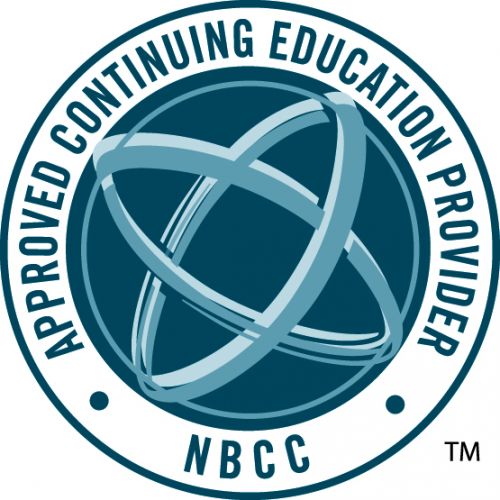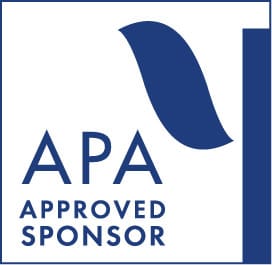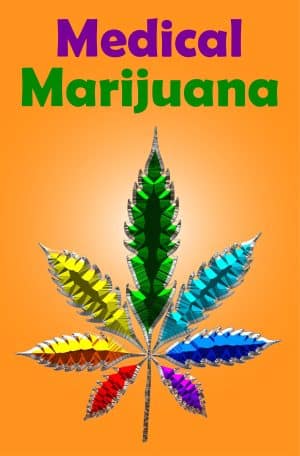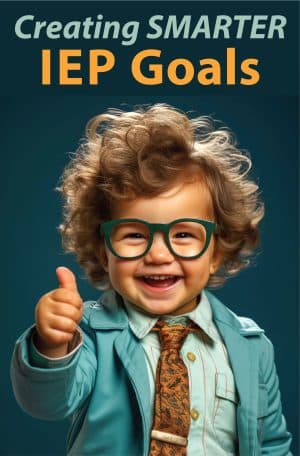Gaslighting
Louis R. Franzini, PhD
$19.00
 Introductory
Introductory
 Online
Online
Course Abstract
Gaslighting is a 1-hour online continuing education (CE) course that provides clinicians with tools to help clients overcome the emotional effects of “gaslighting,” a form of psychological manipulation in which a person seeks to sow seeds of doubt in a targeted individual or in members of a targeted group, making them question their own memory, perception, and sanity.
The characteristics and the consequences of this major disorder remain unfamiliar to most laypeople and even to most health care practitioners. Gaslighting has been insufficiently studied and is rarely mentioned in classrooms, abnormal psychology textbooks, or medical literature. Yet, individuals in intimate relationships, in the workplace, in social media, in politics, and even in governments have displayed the behaviors of gaslighting.
Awareness of gaslighting and its potentially devasting emotional effects will be helpful to health care professionals, who stand ready to assist in overcoming the extraordinary limitations it can have on clients and patients’ personal and social functioning.
This course will focus on individuals’ behaviors, the perpetrators and targets, and the typical consequences which appear in those targets. In addition, we will discuss the experts’ suggested strategies to cope with the perpetrators’ efforts. It is important for all of us to alert and inform citizens to be aware that gaslighting does indeed occur in the larger societal arenas as well.
Course #11-38 | 2020 | 20 pages | 10 posttest questions
Learning Objectives
- Describe the manipulative phenomenon of gaslighting
- List five examples of gaslighting behaviors and ten consequences of gaslighting
- Identify three ways gaslighters use coercive control to gain power
- Specify six coping strategies when you suspect you are being gaslighted
Course Directions
This online course provides instant access to the course materials (PDF download) and CE test. The course is text-based (reading) and the CE test is open-book (you can print the test to mark your answers on it while reading the course document).
Successful completion of this course involves passing an online test (80% required, 3 chances to take) and we ask that you also complete a brief course evaluation.
About the Author(s)
Louis R. Franzini, PhD : Find out More
Louis R. Franzini, PhD, received his B.S. degree in Psychology from the University of Pittsburgh, his M.A. degree in Clinical Psychology at the University of Toledo, and his Ph.D. in Clinical Psychology from the University of Pittsburgh. He then completed a Postdoctoral Fellowship in Behavior Modification at the State University of New York at Stony Brook (now Stony Brook University). Following the postdoctoral program Dr. Franzini joined the Psychology Department at San Diego State University, where he spent his entire academic career. He retired as Emeritus Professor of Psychology. His international academic experience included appointments as Distinguished Professor of Psychology at the Universite Catholique de Louvain, Louvain-le-Neuve, Belgium and Senior Fellow in the School of Accountancy and Business, Human Resource and Quality Management Division at Nanyang Technological University, Singapore. Dr. Franzini is licensed as a psychologist in Florida and in California.
Financial: Dr. Franzini receives royalties on his books from John Wiley & Sons, Rowman and Littlefield, Square One Publishers, Sage Publications and from Professional Development Resources on sales of his courses.
Nonfinancial: No relevant nonfinancial relationship exists.
CE Information
Counseling

Professional Development Resources (PDR) has been approved by the National Board for Certified Counselors (NBCC) as an Approved Continuing Education Provider, ACEP No. 5590. Programs that do not qualify for NBCC credit are clearly identified. PDR is solely responsible for all aspects of the programs.
Professional Development Resources is CE Broker compliant (#50-1635 - all courses are reported within two business days of completion). Professional Development Resources, Inc. is recognized by the New York State Education Department’s State Board for Mental Health Practitioners as an approved provider of continuing education for licensed mental health counselors (#MHC-0135 - Note: New York counselors will receive 1 continuing education credits for completing this self-study course).
Marriage and Family Therapy

Professional Development Resources is approved by the American Psychological Association (APA) to sponsor continuing education for psychologists. Professional Development Resources maintains responsibility for this program and its content. Professional Development Resources is also approved by the National Board of Certified Counselors (NBCC ACEP #5590); the Association of Social Work Boards (ASWB #1046, ACE Program); the New York State Education Department's State Board for Mental Health Practitioners as an approved provider of continuing education for licensed marriage and family therapists (#MFT-0100 - Note: New York MFTs will receive 1 continuing education credit(s) for completing this self-study course); the Texas Board of Examiners of Marriage and Family Therapists (#114); and is CE Broker compliant (#50-1635 - all courses are reported within two business days of completion).
Psychology

Professional Development Resources is approved by the American Psychological Association (APA) to sponsor continuing education for psychologists. Professional Development Resources maintains responsibility for this program and its content.
Professional Development Resources is CE Broker compliant (#50-1635 - all courses are reported within two business days of completion). Professional Development Resources, Inc. is recognized by the New York State Education Department’s State Board for Psychology as an approved provider of continuing education for licensed psychologists (#PSY-0145).
School Psychology

Professional Development Resources is approved by the American Psychological Association (APA) to sponsor continuing education for psychologists. Professional Development Resources maintains responsibility for this program and its content.
Professional Development Resources is CE Broker compliant (#50-1635 - all courses are reported within two business days of completion). Professional Development Resources, Inc. is recognized by the New York State Education Department’s State Board for Psychology as an approved provider of continuing education for licensed psychologists (#PSY-0145).
Social Work

Professional Development Resources, #1046, is approved as an ACE provider to offer social work continuing education by the Association of Social Work Boards (ASWB) Approved Continuing Education (ACE) program. Regulatory boards are the final authority on courses accepted for continuing education credit. ACE provider approval period: 6/12/2025 - 6/12/2028. Social workers completing this course receive 1 clinical continuing education credits. ACE format: Reading-based asynchronous distance learning.
Professional Development Resources is CE Broker compliant (#50-1635 - all courses are reported within two business days of completion). Professional Development Resources, Inc. is recognized by the New York State Education Department's State Board for Social Work as an approved provider of continuing education for licensed social workers (#SW-0664 - Note: New York social workers will receive 1 continuing education credit(s) for completing this self-study course). Professional Development Resources is also approved by the Texas State Board of Social Worker Examiners (#5678).
Customer Testimonials
Really interesting research - lots of new insights.
Great course. Very needed for counselors today! Thank you.
I'm glad I found PDR!
I really appreciate the availability of quality education like this that gives clear and pertinent content and is easily accessible. Thanks for making courses like this (CE credit and affordable) available.
Fantastic course!
More Testimonials
Good course, lots of useful and interesting information in a small package.
Great topic that deserves more circulation!
Very practical and useful course.
I have worked with people who are narcissists and this described their behavior beautifully. I found it validating and encouraging. I have shared what I have learned with others to help them find clarity.
Great course! I learned a lot in a short time!
so helpful! I had observed these behaviors, but never had them explained so clearly. Thank you!
Great course for those of us working with antisocial PD's, forensic populations, and Narcissistic PD. Also for those of us who work with victims of the aforementioned.
Excellent course. Well organized, easy to complete, and useful therapeutic interventions.
Great quick course to brush up on the techniques a gaslighter uses and how to spot them quickly.
I have a new client that just got out of an emotionally abusive relationship that was fueled by gaslighting and this CE is very helpful! I ordered the workbook that was mentioned and will utilizing that with her. Thank you!
Years ago, I watched the movie "Gaslight" with Boyer and Bergman. I found the subject matter intriguing and found this study interesting and helpful in understanding the topic more fully.
Love this topic and loved that this course was concise, informative, and up to date.
I have lived this. I am watching the nation live through the gaslighting experience. This was so relevant. I thought the content was spot-on especially when talking about families and systems. Great course!
Gaslighting is a hot topic at present and this was an excellent overview of the subject!
Excellent course: Concise and to-the-point, engaging, useful -- and, sadly, all too relevant for our world today, socially as well as clinically. Yet respectfully written and communicated. Fascinating. Really enjoyed this course -- thank you.
Well-organized, concise, informative. What I expect from PDR. See y'all in 2023.
Excellent course and very informative!
I thoroughly enjoyed this course and gained much information from it. Thank you.
This course was helpful in bringing this condition to increased awareness among mental health clinicians. Thank you.
An excellent and informative course.
Extremely practical for college teaching and practice.
I was not familiar with gaslighting and found the course extremely helpful in understanding this level of control. It made me want to learn more!
The information is not new to me, including the reason the term got its name, but it is very helpful to review the information. I especially liked the lists in this course as it condenses available information into an easy to digest format that can be used in working with clients. In addition, I liked that the author pointed out that gaslighting - denying another's reality - is something that people can do every day. It's important to understand that every pathological behavior, as determined by its saturation and effect on a person's life and the lives of those around them, can be found in a less saturated, less impactful form throughout society. This can help prevent the current phenomenon of people armchair diagnosing people they disagree with as narcissists.
Great information, very useful. Clear, concise easy to follow. Thanks.
This course was very informative with many good explantations and examples of Gaslighting.
Really enjoyed the opportunity to learn more about "gaslighting" - a term now commonly used that I was not familiar with.
Great course and interesting content. I appreciated the link between narcissism and gaslighting. Great job.
Good and helpful.
Very useful for my clients. Thank you!
This topic is a new way of thinking about some dynamics that are helpful.
Excellent CEU!
Very timely and well constructed course - not only from a clinical perspective, but also in light of the extensive ever-increasing gaslighting that currently is taking place on a political and societal level in the US. This course delivered a lot of useful theoretical and hands on information for one credit! Thank you!
New material to me -- very interesting and well-presented.
I thought it was very good. I like the case examples to illustrate the concepts. Very timely as we are seeing more of this behavior.
Meaningful and to the point. Not too drawn out, making it an enjoyable course that I will recommend to colleagues.
I enjoyed the information in this course and can begin applying immediately to aid clients in understanding further about Gaslighting. Thank you for providing this course.
Great information and quantity of information on a topic so historically not investigated or researched!
Great course, very helpful with good explanations for application.
This course was professional, easy to comprehend, timely, and well written.
This course is excellent! One of your best!
I loved the course and your availability of courses and assistance. Thank you.
Good information. Very useful.
This was a great overview of gaslighting. Very succinct and practical.
Interesting course on a current topic and well presented.
An excellent and informative course.
I really enjoyed this and learned a lot. "Gaslighting" behavior is pretty common and I think you could justify a more extensive course on this. It would also be great to include more ideas on how victims can cope and perhaps strategies for supporting those who gaslight, who are willing to make any small admissions that they use these techniques.
Extremely practical for college teaching and practice.
Excellent course which will be most helpful in my work.
I try to choose CEs that are directly relevant to my caseload, so I typically already have a working familiarity with the subject matter. I believe that, if I learn even one new thing about the topic by taking the course, I will have gained a benefit from it. I learned several new things in this course that I think will be helpful. :)
"Gaslighting" is a definite phenomenon. I presently have a couple clients dealing with this. It was so interesting for me to read about the history of the term "Gaslighting". I think it's super prevalent in relationships between a person with a narcissistic personality disorder and the "victim" with a dependent personality disorder. I would love to read a more in depth course about this in the future. Thanks so much!
Helpful information - provided a name to dysfunctional behavior that I have witnessed and have seen impacts my nutrition clients, but did not know was called Gaslighting. The definitions and suggestions will help me better help my clients. Thank you!
I enjoyed this topic very much and can see how intervention can be very helpful .
The information should be shared with as many people as possible.
Excellent, clear material and test questions
Insightful and useful to social workers dealing with victims of emotional abuse.
Great information! Very current concept and well explained. Thank you!
- ADHD
- Adults
- Alternative Medicine
- Alzheimers & Aging
- Animal-Assisted Therapy
- Autism
- Behavior Therapy
- Child & Adolescent
- Closeout
- Communication
- Couples-Family-Parenting
- Cultural Diversity
- Depression & Anxiety
- Domestic Violence
- Ethics & Risk Management
- Gender Identity
- HIV-AIDS
- Human Trafficking
- Laws & Rules
- Medical Errors
- Mindfulness & Yoga
- National Psychologist
- Nutrition & Fitness
- Psychotherapy
- Sexuality
- Substance Abuse
- Suicide
- Supervision
- Trauma & PTSD




